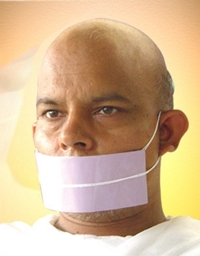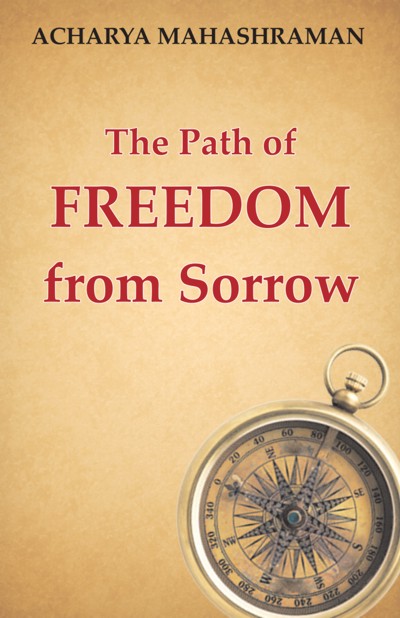Humans represent one, out of the infinite souls present in this world. Human being can also be categorized from the qualitative perspective as follows:
- Duratma (Evil soul)
- Sadatma (Good soul)
- Mahatma (Great soul)
- Parmatma (Supreme soul)
In general, humans who do not have right perspective, and who practices evils like violence, follows non-truth and behaves dishonestly in an intense form repeatedly can be categorized as duratma (evil souls). Such people are uncompassionate and they cannot do the good for anyone. The knowledge in such evil people will always contribute in increasing the dispute. The earned wealth will be misused and additionally, it will produce ego. People of this category if are prosperous and wealthy, will definitely think evil and do evil for others.
People who belong to sadatma category are termed as good souls. Such people are full of generosity. They lead a good life with decent and humble attitude even while living the householder life.
Great souls belong to the third category and are called mahatmas. The souls which move on the path of asceticism after renouncing the worldly attachment and accept the path of renunciation get honour of being known as mahatma. In the life of such people the benevolent feeling for others keep multiplying along with the feeling of self-welfare. Self-restraints hold the prominent place in their life. They are honoured with the name of sadhu (saint) or sanyasi (ascetic).
The fourth category is supreme souls. These souls after living the meaningful life of a mahatma reach the state of supreme form, known as parmatma. Parmatma is the soul, who attains keval gyan through the utmost spiritual practice and is either living in the mundane world or has attained emancipation already.
It seems difficult for everyone to attain the state of parmatma, because it is a very effortful journey. Becoming mahatma is not only tough but it also needs intense kshayopasham (destruction-cum-subsidence) of karma. It requires great effort and it demands allegiance towards the goal. Thus becoming mahatma may not be so easy, but living the life of sadatma is possible for everyone. Through the practice of meditation any person can leave the evil attitude and move forward and continue to live his life-journey as sadatma. In general mahatma is the person whose action follows his words. Whatever he thinks, gets projected through words and the same can be seen in his actions too. Conversely, the actions of duratma do not follow his words. Purity of thoughts is necessary for higher consciousness. In spite of having the outfit of Mahatma if thoughts are impure, it is not an admirable thing.
Development of emotional purity is the prime achievement of meditation. Control over passion or attachment and aversion or anger, ego, deceit and greed can certainly bring emotional purity. A human mind has various thoughts and can be multi minded as the waves of psyche keeps changing. Sometimes one gets angry, sometimes shows ego, sometimes becomes greedy or sometimes is jealous of others. Each moment humans are capable of showing different emotion. Emotions should be purified through refinement of anger, ego, etc. Man should analyse every moment that why he has to be egoist? When death is inevitable then what is the reason for such arrogance. Death can show up any time or any moment. Death has many doors and it can enter through any door. It may be illness, accident or any other way. When we don't have control over death then why to express ego? Ego is not the great thing.
Very truly said by Saint Kabir:
"Naman khaman am dinata, sabka adar bhav Kahe kabira vahi bada, jaka bada svabhav"
That person is great who has humbleness, forgiveness and respect for all and carries a good attitude. Man must aim at becoming sadatma. Becoming mahatma is great and getting close to the state of parmatma is like living a meaningful life.
One must do a self-analysis and observe, 'where am I standing in life? What weaknesses do I have? If I can't overcome all at once, then I should target at least one at a time. Through constant self-suggestions and constant practice, 'I will succeed in improving it. Gradually, I will try to rectify the other weaknesses one by one.' The true benefit of practicing meditation is qualitative development. If there is no purity with gradual practice of meditation then the benefit is nil. Man should always do an introspection before sleeping- 'What kind of thoughts I got throughout the day? Did negative thoughts dominate or the positive thoughts were in effect?'
A carefully planned day spent with balanced lifestyle equates to a meaningful day. The futile and worthless day because of mistakes and sluggishness means the day is completely lost. Man should think time and again, do self-introspection and reflect, 'I would not repeat mistakes because of unawareness'. He should also observe about his activity whether it was evil or good. Sometimes it is observed that man seems a sadatma and he is as well but in the next moment he gets transformed into duratma as he gets enclosed by negative thoughts. Though, it is also possible for a duratma to get transformed into sadatma in the next moment because of positive thinking.
Impure thoughts causes bondage and pure thoughts lead to the door of salvation. However the outfit also helps in uplift. For example, an ascetic in his dress can get angry but at that moment his costume can motivate him and he immediately gets aware that, T am a Monk' A person should try to move upward by understanding his level through self-introspection and self-analysis. Eventually through gradual advancements he should try to figure out the way to become parmatma. The process of purification of emotion should be continued. If soal is pure then certainly he gets peace here and later also the kingdom of peace will be available for him.
 Acharya Mahashraman
Acharya Mahashraman
